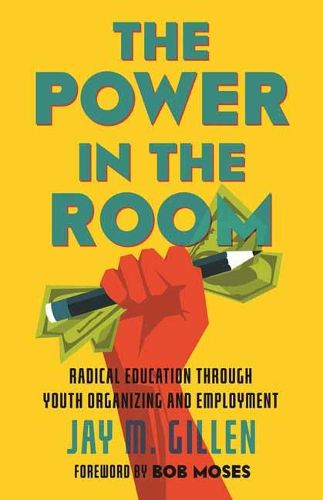Readings Newsletter
Become a Readings Member to make your shopping experience even easier.
Sign in or sign up for free!
You’re not far away from qualifying for FREE standard shipping within Australia
You’ve qualified for FREE standard shipping within Australia
The cart is loading…






How community-centered, peer-to-peer, youth knowledge exchanges are evolving into a strong economic and political foundation on which to build radical public education.
Following in the rich traditions in African American cooperative economic and educational thought, teacher-organizer Jay Gillen describes the Baltimore Algebra Project (BAP) as a youth-run cooperative enterprise in which young people direct their peers’ and their own learning for a wage. BAP and similar enterprises are creating an educational network of empowered, employed students.
Gillen argues that this is a proactive political, economic, and educational structure that builds relationships among and between students and their communities. It’s a structure that meets communal needs–material and social, economic and political–both now and in the future. Through the story of the Baltimore Algebra Project, readers will learn why youth employment is a priority, how to develop democratic norms and cultures, how to foster positive community roles for 20-30 year-olds, and how to implement educational accountability from below.
$9.00 standard shipping within Australia
FREE standard shipping within Australia for orders over $100.00
Express & International shipping calculated at checkout
How community-centered, peer-to-peer, youth knowledge exchanges are evolving into a strong economic and political foundation on which to build radical public education.
Following in the rich traditions in African American cooperative economic and educational thought, teacher-organizer Jay Gillen describes the Baltimore Algebra Project (BAP) as a youth-run cooperative enterprise in which young people direct their peers’ and their own learning for a wage. BAP and similar enterprises are creating an educational network of empowered, employed students.
Gillen argues that this is a proactive political, economic, and educational structure that builds relationships among and between students and their communities. It’s a structure that meets communal needs–material and social, economic and political–both now and in the future. Through the story of the Baltimore Algebra Project, readers will learn why youth employment is a priority, how to develop democratic norms and cultures, how to foster positive community roles for 20-30 year-olds, and how to implement educational accountability from below.